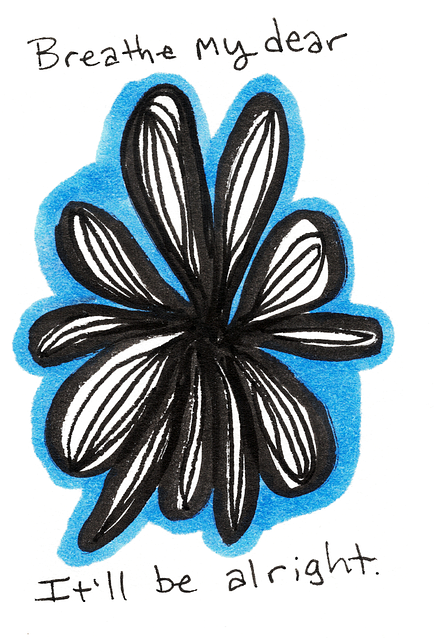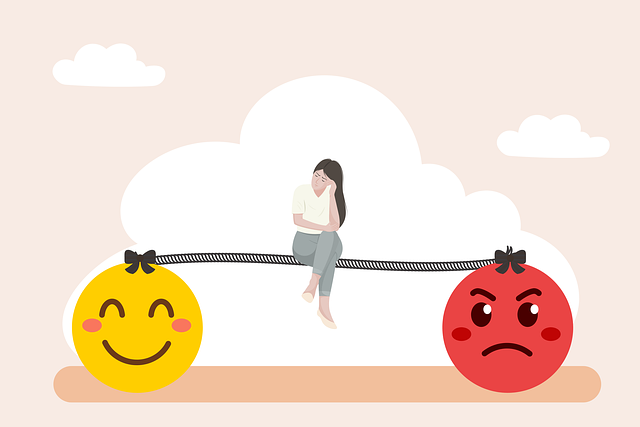Boulder Womens Issues Therapy focuses on early depression intervention through education and coping skills development. They highlight key symptoms like mood swings and persistent sadness, emphasizing the importance of mental health awareness. The therapy emphasizes resilience-building through mindfulness, meditation, exercise, and structured self-care routines. Social connection is crucial for prevention, offering support networks to combat isolation. Boulder's specialized services include CBT, Interpersonal Therapy, Mental Wellness Coaching, and social skills training in a compassionate, inclusive environment.
Depression is a prevalent yet manageable condition. This article explores comprehensive strategies for prevention, empowering individuals to take control of their mental health. From recognizing subtle signs and symptoms to adopting mindfulness practices and cultivating strong social connections, these tools offer a holistic approach to well-being. Additionally, we delve into the therapeutic options available at Boulder Women’s Issues Therapy, highlighting professional support as a vital component in combating depression.
- Understanding Depression: Recognizing Signs and Symptoms
- Building Resiliency: Coping Skills for Daily Life
- Mindfulness and Meditation: Finding Inner Peace
- Social Connection: The Power of Support Networks
- Seeking Professional Help: Therapies and Treatment Options at Boulder Women's Issues Therapy
Understanding Depression: Recognizing Signs and Symptoms

Understanding Depression involves recognizing its subtle signs and symptoms, which can vary from person to person. In Boulder Womens Issues Therapy, professionals often observe changes in mood, energy levels, and interest in activities that were once enjoyed. Persistent feelings of sadness, hopelessness, or worthlessness are red flags, as well as significant changes in appetite, sleep patterns, and concentration. These symptoms can indicate a depressive episode, underscoring the importance of early intervention.
Mental Health Education Programs Design play a crucial role in Depression Prevention. By educating individuals about these signs, communities can foster open conversations about mental health. This includes promoting Stress Reduction Methods that have been proven effective in managing depression, such as mindfulness practices, regular exercise, and maintaining a balanced diet. Through these initiatives, Boulder Womens Issues Therapy aims to empower individuals to take proactive steps toward better mental well-being.
Building Resiliency: Coping Skills for Daily Life

Building resilience is a key strategy in preventing and managing depression. Coping skills are essential tools that individuals can use to navigate daily challenges and maintain mental well-being, especially those seeking Boulder womens issues therapy. Developing these skills helps people adapt to stressful situations and regulate their emotions effectively.
One effective method is incorporating confidence-boosting activities into daily routines. Self-care practices such as meditation, exercise, and journaling can enhance emotional resilience. A structured self-care routine development for better mental health allows individuals to take charge of their well-being. Additionally, seeking professional guidance from therapists specializing in women’s issues can provide valuable tools for risk assessment and managing potential mental health challenges, fostering a supportive environment for personal growth.
Mindfulness and Meditation: Finding Inner Peace

In today’s fast-paced world, finding moments of calm and inner peace is essential for mental well-being, especially when navigating challenging life situations. Mindfulness and meditation practices have gained significant attention as powerful tools in the realm of Boulder women’s issues therapy. These ancient techniques offer a path to self-discovery and emotional resilience. By focusing on the present moment and cultivating awareness, individuals can effectively manage stress reduction methods and even prevent depressive episodes.
Boulder’s diverse cultural sensitivity in mental healthcare practice embraces various mindfulness meditation techniques, catering to different preferences and backgrounds. Regular practice has been shown to reduce symptoms of depression and anxiety, fostering a sense of balance and clarity. Incorporating these practices into daily routines can be as simple as dedicating a few minutes each morning or evening to quiet reflection, allowing one to disconnect from the hustle and bustle of daily life and connect with their inner self.
Social Connection: The Power of Support Networks

Social connection is a cornerstone of depression prevention and recovery. Building and maintaining strong support networks can provide individuals with a sense of belonging and purpose, two key factors in combating feelings of isolation and despair. For women seeking Boulder Womens Issues Therapy, fostering social connections can be transformative. These networks offer emotional support, a safe space to express vulnerabilities, and practical help during challenging times. Whether through joining community groups, participating in social activities, or simply reaching out to loved ones, having people to rely on can significantly strengthen resilience against depression.
In the context of healthcare providers, burnout prevention strategies often emphasize the importance of self-care, which includes cultivating robust social support systems. Techniques like conflict resolution and crisis intervention guidance learned through therapy can further enhance these connections. By applying what they’ve learned in their personal lives and professional settings—be it resolving conflicts within teams or providing urgent Crisis Intervention Guidance to patients—healthcare providers can not only maintain their well-being but also better serve their clients, fostering a cycle of positive impact and enhanced social connections that ultimately contribute to depression prevention.
Seeking Professional Help: Therapies and Treatment Options at Boulder Women's Issues Therapy

At Boulder Women’s Issues Therapy, we understand that seeking professional help is a significant step towards preventing and managing depression. Our compassionate team offers a range of effective therapies and treatment options tailored to meet individual needs. Cognitive Behavioral Therapy (CBT), for instance, helps individuals identify and change negative thought patterns contributing to depression, while Interpersonal Therapy focuses on improving relationships and social skills, which play a crucial role in mental health.
In addition to these established therapeutic approaches, we also incorporate innovative methods such as Mental Wellness Coaching Programs Development and Social Skills Training. These programs are designed to empower individuals with coping strategies, build resilience, and enhance their overall well-being. Furthermore, our experts stay abreast of the latest research in Mental Health Policy Analysis and Advocacy, ensuring that our clients receive the best possible care within a supportive and inclusive environment.
Preventing depression involves a multifaceted approach, from cultivating resiliency and practicing mindfulness to fostering strong social connections. As discussed, understanding the signs and symptoms of depression is crucial, and seeking professional help from specialized centers like Boulder Women’s Issues Therapy can provide effective therapies and treatment options. By integrating coping skills into daily life and leveraging support networks, individuals can build a robust defense against depressive episodes. Remember that it’s never too late to prioritize mental well-being and embrace strategies that promote lasting inner peace.














